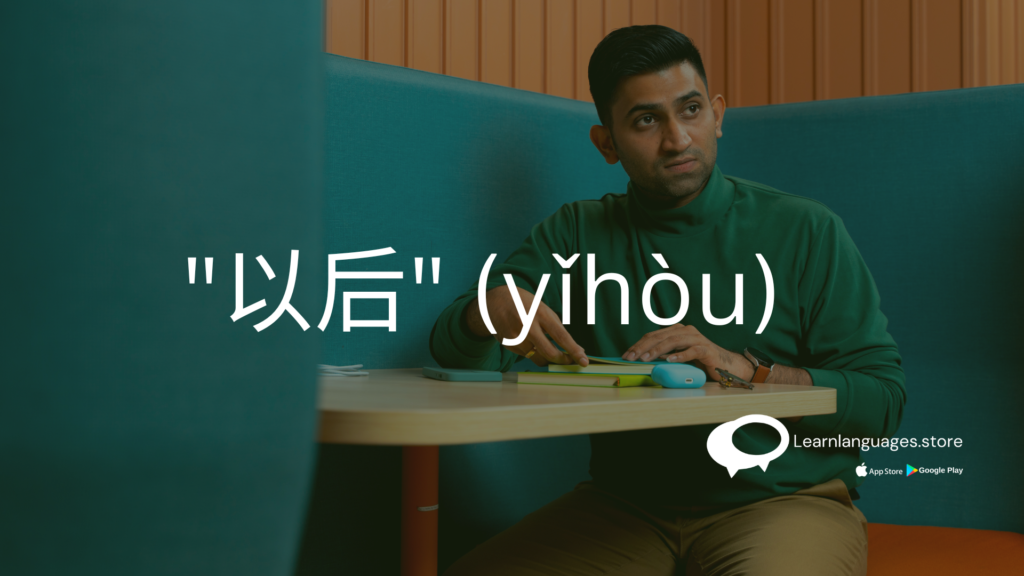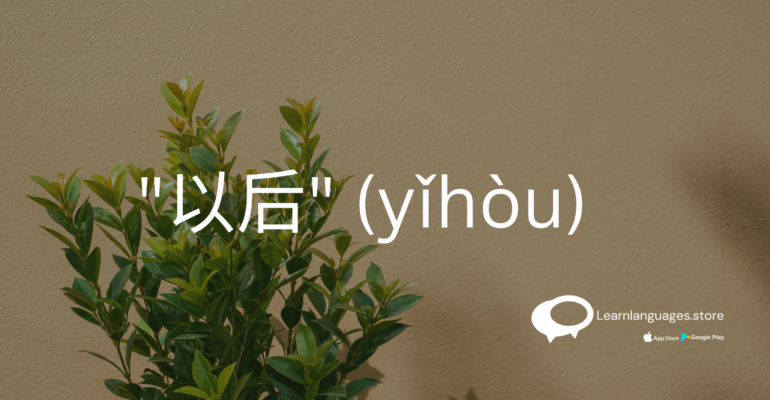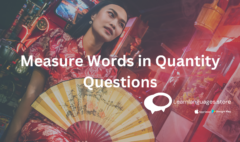Using “以后” (yǐhòu) to Express “After” in Chinese Grammar
Using “以后” (yǐhòu) to Express “After” in Chinese Grammar
Estimated reading time: 3 minutes

Level: A2 / HSK1
Similar to:
- Before a specific time with “以前” (yǐqián) (A2)
- In the future in general with “以后” (A2)
- Comparing “以后” and “的时候” (de shíhòu) (B1)
- Comparing “以后,” “然后,” and “后来” (B2)
- Comparing “以后” and “之后” (B2)
Used for:
- Sequencing events in time
- Expressing time and date
Keywords:
- 以后 (yǐhòu)
- 后 (hòu)
- 以 (yǐ)
Just as 以前 (yǐqián) can be used to describe events before a specific time, 以后 (yǐhòu) can be used to describe events after a specific time.
Structure
This grammar structure is similar to the English “after such-and-such, something happens.” It’s quite simple; all you have to do is put the “after” (以后) after the time words or time phrase.
Structure: Time / Verb + 以后, ….
The time can be a time or date, or an action or event. It may or may not be in the future.
Examples
- 下午三点以后,我不在家。
- Xiàwǔ sāndiǎn yǐhòu, wǒ bù zài jiā.
- After three p.m., I will not be at home.
- 来中国以后,她认识了她的老公
。- Lái Zhōngguó yǐhòu, tā rènshi le tā de lǎogōng.
- After coming to China, she met her husband.
- 她一个月以后开始上班。
- Tā yī gè yuè yǐhòu kāishǐ shàngbān.
- After one month, she will start working.
- 吃完午饭以后,我们要开会。
- Chī wán wǔfàn yǐhòu, wǒmen yào kāihuì.
- We are going to have a meeting after we finish lunch.
- 几年以后,我们公司会更大。
- Jǐ nián yǐhòu, wǒmen gōngsī huì gèng dà.
- In a few years, our company will be even bigger.
- 老板半个小时以后回来。
- Lǎobǎn bàn gè xiǎoshí yǐhòu huílái.
- After half an hour, the boss will return.
- 下班以后你想跟我们一起去打球吗?
- Xiàbān yǐhòu, nǐ xiǎng gēn wǒmen yīqǐ qù dǎqiú ma?
- After we get off work, would you like to go play ball with us?
- 老板来了以后,大家都不说话了。
- Lǎobǎn lái le yǐhòu, dàjiā dōu bù shuōhuà le.
- After the boss came, everyone stopped talking.
- 你到家以后给我打电话。
- Nǐ dào jiā yǐhòu gěi wǒ dǎ diànhuà.
- After you get home, call me.
- 结婚以后爸爸不喝酒了。
- Jiéhūn yǐhòu bàba bù hējiǔ le.
- After he got married, dad stopped drinking.
By mastering the use of 以后 (yǐhòu), you can effectively sequence events and describe actions that happen after a specific time, which is crucial for clear and precise communication in Chinese.
Learn Languages Store
Vashi,
Email: services@learnlanguages.store










